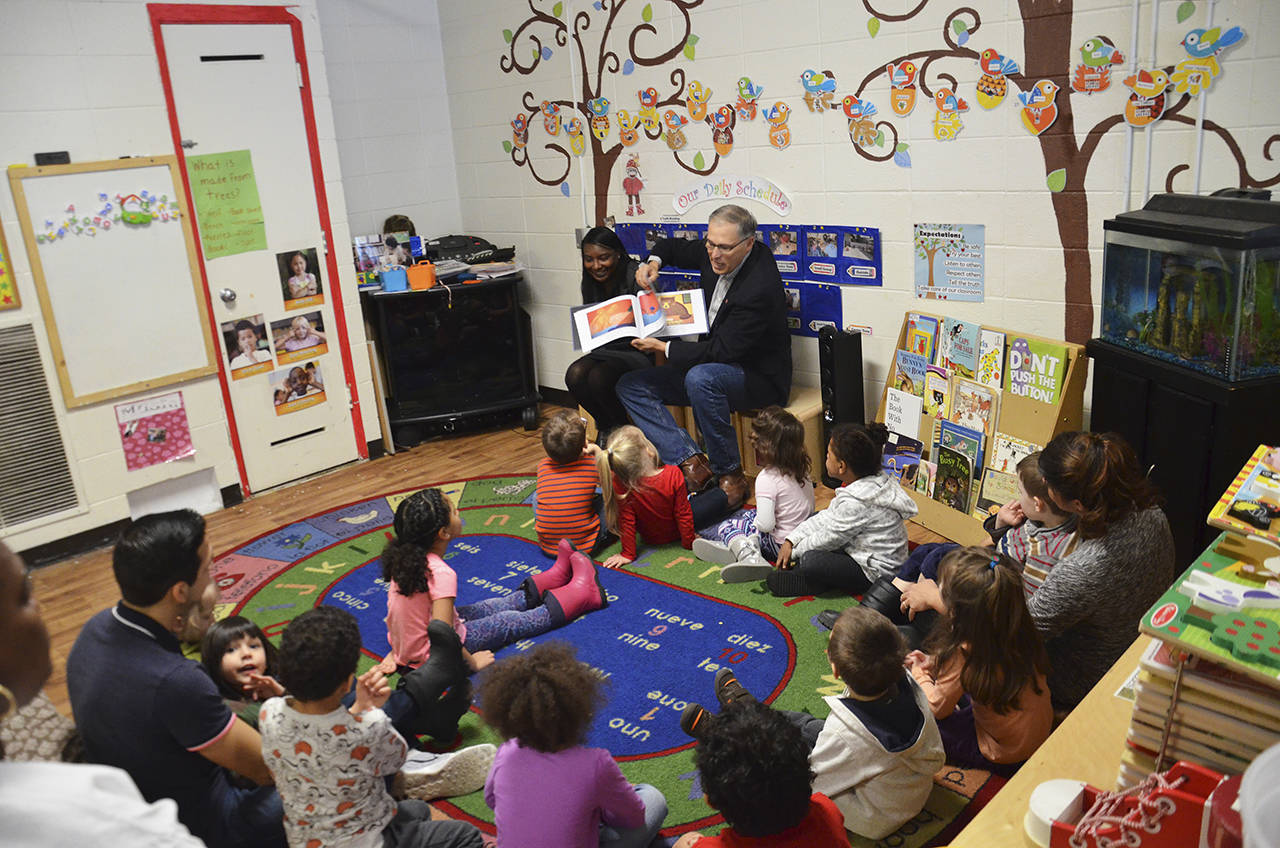OLYMPIA — Gov. Jay Inslee on Wednesday signed a new law to delay any cut in school levy rates for one year, ensuring districts can continue collecting money on which they depend to educate 1.1 million public school students.
Inslee signed Senate Bill 5023 surrounded by Democratic members of the House and Senate, education professionals and students.
No Republican lawmaker attended the signing, though the measure had strong bipartisan support. It passed by margins of 48-1 in the Senate and 87-10 in the House.
It allows school districts to collect local maintenance and operation levies at their current rate through Jan. 1, 2019, which is when these property tax assessments expire in most districts. Absent an extension, school districts faced the collective loss of $358.3 million in 2018 as the rate was set to drop from 28 percent to 24 percent in January, according to an analysis prepared by legislative staff.
“With this bill we will rescue our schools from the levy cliff,” Inslee said, adding it provides students, families and school officials the “certainty they deserve” as they develop budgets for the next school year.
The law contains a couple of new accountability regulations.
Beginning Jan. 1, 2018, each school district will need to keep local levy dollars in a separate account from state and federal funds.
And, starting next year, a district cannot put a maintenance and operation levy on the ballot until it provides a report to the office of the Superintendent of Public Instruction detailing the programs and activities to be funded with the money. The purpose of these two new requirements is to ensure local tax dollars are not used for basic education.
Members of both parties said the provisions will help provide clarity on how local tax dollars are spent in schools.
However, lawmakers may have to make additional decisions before any district can comply. Educators are counting on them to better define the basic programs for which the state must pay and enrichment offerings that local dollars can cover.
And, before schools can segregate the money, the state’s accounting systems need retooling to make clear where the dollars should be deposited. Without such changes, the state schools chief and the state auditor won’t be able to track the flow of money as required in the law.
Superintendent of Public Instruction Chris Reykdal told superintendents last week he won’t have any advice for them until lawmakers agree on a broad plan for fully funding public schools as required by the Supreme Court.
“Getting the bill passed has been one of my top priorities since taking office, and I worked with legislators from all four caucuses to make sure they understood the importance of this bill in supporting your work,” he wrote in a March 10 letter to district officials.
“I’m reaching out today to let you know that, for now, you shouldn’t expect guidance from OSPI on the levy accountability parts of the bill. That language was important to get the bill passed, but it’s only step one in a much larger conversation,” he continued. “I fully expect that any and all provisions related to the use of local levies will get much further consideration.”
Jerry Cornfield: 360-352-8623; jcornfield@heraldnet.com. Twitter: @dospueblos.
Talk to us
> Give us your news tips.
> Send us a letter to the editor.
> More Herald contact information.

























